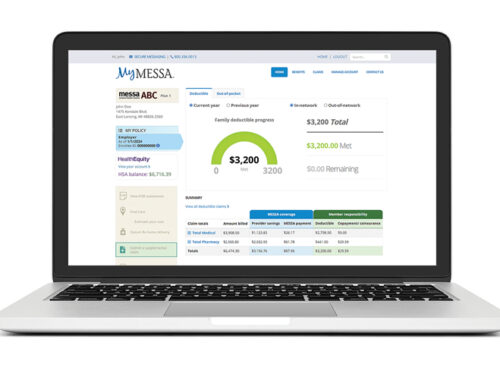From MESSA partner Ovia Health
Helping your teen express frustration, sadness, anger
No one likes feeling sad, angry or frustrated. When you’re a parent, seeing your kid struggle with emotions can be even harder than experiencing them yourself. We can’t protect our kids from negative feelings, but we can help them learn to manage and express them in healthy ways.
Here are some ideas for helping your teen learn productive ways to express big feelings:
Set a good example
As adults, our ability to express, name and manage our own emotions is an important way to help children and teens learn. It’s OK to show that you’re human and experience all kinds of emotions. However, when a parent expresses anger by shutting down, raging or shutting others out instead of talking about their feelings, it sets the wrong example for kids.
“Your child doesn’t need to be a confidant or understand your big problems, but they can see that all emotions are OK to have — and that the tough ones don’t last forever,” says Ovia Health Coach Lilly Schott.
Take time to reflect on how you manage your emotions, and whether you’re setting a good example for your kids.
Share strategies at the right time
Telling someone to calm down without teaching them how isn’t very effective. When you’re talking with your kids about managing emotions, offer them solid strategies: deep breathing, listening to music, walking away, journaling or moving their bodies.
It’s hard for activated brains to learn new skills, so it’s best to wait until your teen is calm before trying to teach an anger- or frustration-management tool.
Point out when they’re doing a good job
When your teen is coping well with strong emotions, it can be powerful to point out what a good job they’re doing. You might say, “I know you’re feeling angry, and I’m proud of you for talking to me about it and going for a run to settle down.”
Be the rock
When our kids are upset, we often want to just fix it. Many times, however, our job isn’t to fix anything. Listening to your child and acknowledging that their emotions are real and valid is powerful. A simple statement like “I believe you” can go far. Allowing kids to problem solve is crucial for their independence.
The next time your kiddo is experiencing something difficult, take a deep breath and know that how you help them process their emotions has the power to give them emotional intelligence that will benefit them for life.
Reviewed by the Ovia Health Clinical Team






